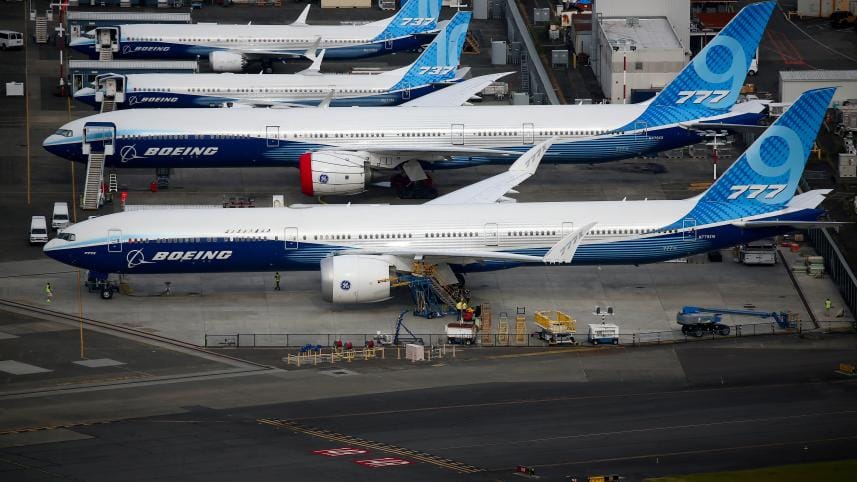Boeing is just too big to jail

Justice isn't always blind. When it comes to levying punishments on powerful companies, the challenge is to inflict enough pain that bad behavior is deterred, but not so much that it creates unintended suffering elsewhere. Boeing, an American icon in a heap of trouble, exemplifies that quandary.
Prosecutors are recommending that the Department of Justice bring criminal charges against the $104 billion aviation company, according to sources cited by Reuters, for breaching the terms of its deferred prosecution agreement.
After two crashes killed 346 people, Boeing agreed in 2021 to a three-year settlement, that shielded it from criminal prosecution, but in which it admitted former employees had misled regulators, pledged to do better, and paid $2.5 billion. The government says Boeing has failed to live up to its side of the bargain. Boeing disagrees.
There's a problem, though. Boeing is a national champion with a big economic footprint, and that could limit the amount of pain the government is able to inflict. For example, commercial aviation is essentially a duopoly shared between Boeing and its European rival Airbus.
It's also the nation's single largest exporter, with over $30 billion of foreign revenue in 2023. And what hurts the US aircraft-maker also hurts numerous small subcontractors who supply Boeing planes' parts. Customers like Southwest Airlines, already reeling from delayed jet deliveries, might see their problems worsen.
One of the biggest threats of a prosecution for a company like Boeing – debarment from government contracts – is also hard to enforce. Consolidation has already left too little competition in the sector, and over a third of the company's $78 billion of revenue last year came from government contracts. Past guilty pleas by Boeing, including for felonies, did not stop the company from quickly getting back on the government-contract gravy train.
In 2003, for example, the Air Force suspended some of the company's units from winning work, but granted two waivers to the Boeing units for space and rocket contracts. Then there are fines. Those hurt, but not much for a company that has already lost around $100 billion of market capitalization in the past five years.
Boeing could find itself subject to more mundane punishments, like the appointment of "monitors" who sit in the companies' offices and report back to regulators, something imposed on banks in the past for money-laundering slips, for example.
Such scrutiny might have an effect, since the company, and its outgoing CEO Dave Calhoun, haven't been able to fix various self-inflicted problems. Prosecutors will hope so anyway. Creating a national champion is hard; bringing one to heel is harder.



 For all latest news, follow The Daily Star's Google News channel.
For all latest news, follow The Daily Star's Google News channel.
Comments